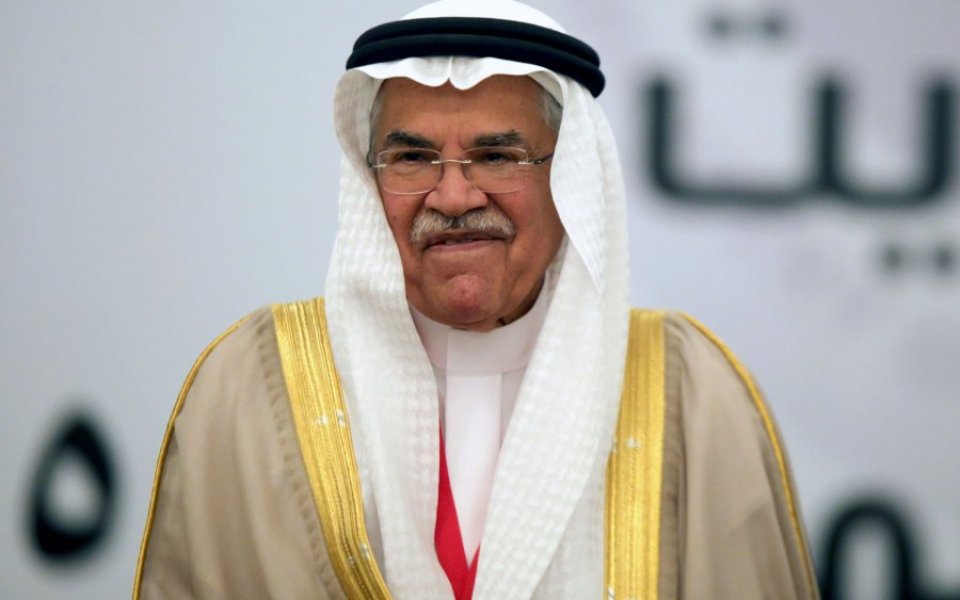Saudi oil minister denies Opec is at war with US shale but rules out production cut, sending the price of crude lower after multi-day gains

The Saudi oil minister Ali al-Naimi has denied Opec is at war with the shale oil industry, though has said production cuts are not going to happen.
His comments have pushed the oil price down by around two per cent to $31.87 dollars per barrel for West Texas Intermediate and $33.33 for Brent crude. The oil price has recorded a price rise of almost 10 per cent over the last few trading sessions.
Naimi has been speaking at the IHS CERAWeek conference in Houston, Texas, in front of much of the US shale oil industry. Royal Dutch Shell boss Ben van Beurden is due to speak later today.
The minister, considered to be one of the industy’s most influential policymakers, has sought to defend Opec’s decision not to curb output.
Naimi said:
We have not declared war on shale or any given country or company, contrary to all the rumors. I have no concerns about demand. I welcome all sources of supply, including shale. We are hopeful that the nimbleness of shale oil producers will continue. These supplies will be needed quickly once markets rebalance and tighten.
Naimi reiterated Opec's stance that the kingdom is willing to work with other oil producers to stabilise the price after a supply glut has driven it down, despite growing demand around the world.
De facto Opec leader Saudi Arabia has been trying to broker a deal to limit both Opec and non-Opec production. So far the only non-Opec country to agree to the freeze is Russia.
"He didn't say anything new. Saudi wants to let the market decide the price, and we've known that for some time. What's sent the oil price down is dismissal of rumours there could be a production cut after the freeze, that's not going to happen," Spencer Welch, director at IHS Energy told City A.M.
Opec members Qatar, the UAE, Kuwait, and Venzuela have all signed up and Russian energy minister Alexander Novak said those in agreement account for 70 per cent of global output, enough to drive down the price with a production freeze.
Naimi said there will be another meeting in March and more countries are expected to be present.
The deal has largely been eschewed by oil experts who claim it will be impossible to enforce and the countries would not stick to it.
Meanwhile, the Iranian oil minister has today called the proposal “ridiculous” and "laughable", pushing crude prices lower.
Iran and Iraq, the only two countries that are set to significantly ramp up their output in coming months, have said they still intend to increase production to regain lost market share.
The oil price has plummeted by more than 70 per cent since its height in the Summer of 2014.
[custom id="108"]